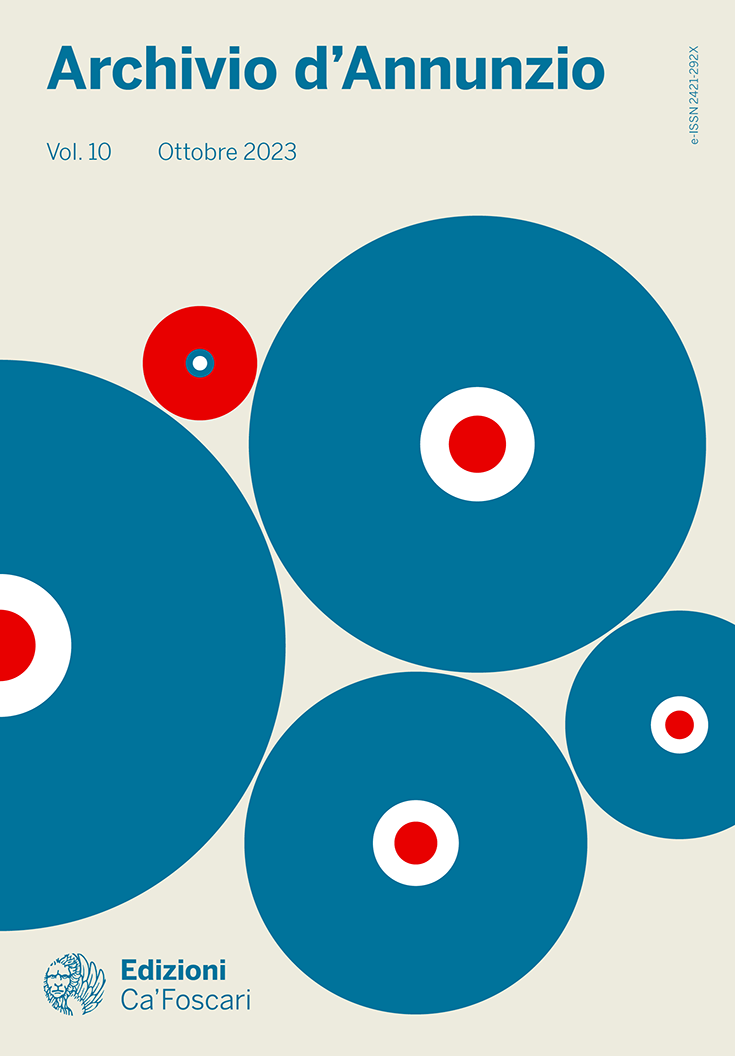Rivista |
Archivio d’Annunzio
Fascicolo monografico | 10 | 2023
Articolo | D’Annunzio, Fedra e un volgarizzamento ovidiano
D’Annunzio, Fedra e un volgarizzamento ovidiano
Abstract
Through the study of the preparatory papers of d’Annunzio’s Phaedra preserved in the Archivio Privato del Vittoriale, the article aims to demonstrate the leading role of the medieval vulgarisation of Ovidian’s Metamorphoses by Arrigo Simintendi for the composition of the tragedy. Through a careful work of compulsion and auscultation of the fourteenth-century text, d’Annunzio recovers formal and lexical tesserae to build Phaedra’s hendecasyllables, to recreate congenial images, to provide the most appropriate sounds and musicality, and to suggest psychological insights through the comparison between his characters and the mythological archetypes dear to his theatre, of which Ovid’s masterpiece is an admirable compendium. Ultimately, the essay suggests that the influence of Simintendi’s vulgarization and the method of compulsion extends beyond the tragedy of 1909.
Presentato: 13 Febbraio 2023 | Accettato: 07 Luglio 2023 | Pubblicato 26 Ottobre 2023 | Lingua: it
Keywords Ovidio’s Metamorphoses • Fedra • D’Annunzio’s theatre • Medieval and contemporary sources • Compositional method
Copyright © 2023 Edoardo Ripari. This is an open-access work distributed under the terms of the Creative Commons Attribution License (CC BY). The use, distribution or reproduction is permitted, provided that the original author(s) and the copyright owner(s) are credited and that the original publication is cited, in accordance with accepted academic practice. The license allows for commercial use. No use, distribution or reproduction is permitted which does not comply with these terms.
Permalink http://doi.org/10.30687/AdA/2421-292X/2023/01/008





